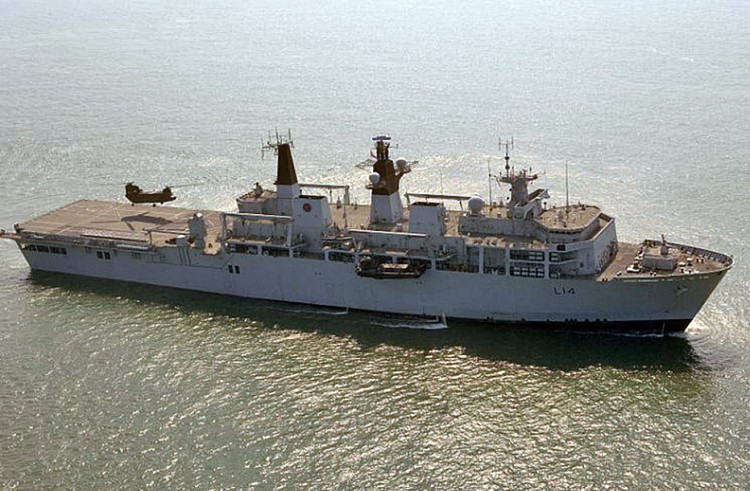The Royal Navy warship HMS Albion (l-14), a Landing Platform Dock, boldly sailed past the disputed Paracel Islands in the South China Sea in a clear demonstration the freedom of navigation operations promised by the United Kingdom and France has begun in earnest.
The Royal Navy said HMS Albion complied with international law and norms in her sail past and exercised her freedom of navigation rights in full. The Albion's patrol on Aug. 31 also demonstrated the UK does not recognize excessive maritime claims around the Paracel Islands, said, military observers.
The Paracels (called Xisha in Chinese and Hoàng Sa in Vietnamese) is controlled by China but is also claimed by Vietnam and the Republic of China (Taiwan). It consists of more than 130 islets and reefs on which China has built some 20 military installations.
In its sail past, the Albion stayed outside the territorial seas around any features in the island group. In response to the Albion's foray, the People's Liberation Army Navy (PLAN) sent a frigate and two helicopters to challenge the British warship, which serves as a troop carrier.
The fact the Royal Navy sent a lightly armed warship (its heaviest armament consists of 20 mm autocannon) to this potentially explosive ara seems to suggest the British intended this sortie as a demonstration of will.
For its part, China said the UK was engaged in "provocation" and that it had lodged a strong complaint. China's the Foreign Ministry alleges Albion entered Chinese territorial waters around the Paracel Islands without permission.
The ministry also said the actions by the Albion violated Chinese law and relevant international law and infringed on China's sovereignty. It said China strongly opposes this action and has lodged stern representations with the British to express strong dissatisfaction.
The ministry then noted that China strongly urges the British to immediately stop provocative actions to avoid harming the broader picture of bilateral relations and regional peace and stability. And as a threat, the ministry said China will continue to take all necessary measures to defend its sovereignty and security.
Last June, the Royal Navy and the French Navy ("Marine Nationale") said it will join the U.S. Navy in patrolling the disputed South China Sea.
UK Secretary of State for Defense Gavin Williamson said the Royal Navy has assigned three warships to the Asia-Pacific to send the "strongest of signals" on the importance of freedom of navigation and to keep up maximum pressure on North Korea. Deployed to Asia are the HMS Sutherland (F81), a Type 23 frigate; HMS Argyll (F231), a Type 23 Duke-class frigate and HMS Albion (L14), an Albion-class Landing Platform Dock.
Williamson said the main mission of this squadron is to conduct freedom of navigation operations (FONOPS) in the South China Sea. The reason that Royal Navy warships are here is to send the strongest of signals. The UK believes that countries should play by the rules, said Williamson.






